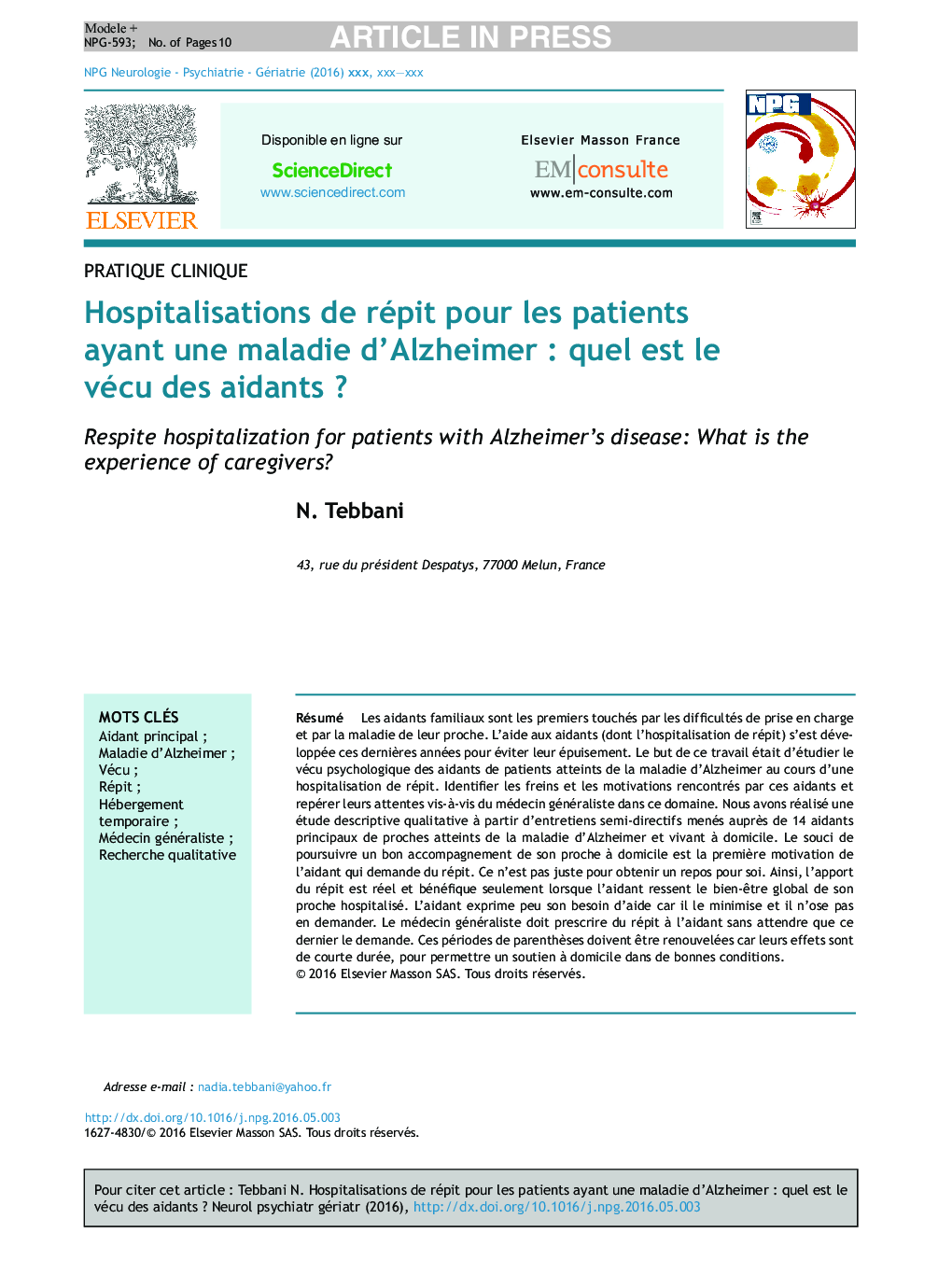| Article ID | Journal | Published Year | Pages | File Type |
|---|---|---|---|---|
| 5662841 | NPG Neurologie - Psychiatrie - Gériatrie | 2017 | 10 Pages |
Abstract
Family carers are the first to be affected by the difficulties resulting from the illness of their loved ones and the support they provide. Assistance to carers (in particular respite care through hospitalisation) has been developing to avoid carer burn-out. The objective of this study was to explore the psychological experience of carers of patients with Alzheimer's disease during respite periods via patient hospitalisation. This involved identifying barriers and motivations among these carers, and their expectations in this field towards their general practitioner. A qualitative study was conducted using semi-structured interviews with 14Â main carers of persons close suffering from Alzheimer's disease and living at home. The desire to continue to provide good accompaniment for their relatives is the first motivation of the carers, and not respite care for its own sake. The benefit of respite care is real only when the carer considers the overall well-being of his or her relative during the hospitalisation to be satisfactory. A helper seldom expresses the need for help, minimising it or not daring to ask for assistance. The general practitioner should prescribe respite for the carer without waiting for the carer to ask for it. Because its effects are short-lived, the period respite should be renewed to enable the care to continue in the home in the best possible conditions.
Keywords
Related Topics
Health Sciences
Medicine and Dentistry
Geriatrics and Gerontology
Authors
N. Tebbani,
